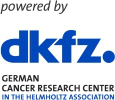Workshop Registration:
Fit for OMERO: How imaging facilities and IT departments work together to enable RDM for bioimaging
Description:
Research data management (RDM) in bioimaging is challenging because of large file sizes, heterogeneous file formats and the variability of imaging methods. The image data management system OMERO (OME Remote Objects) allows for centralized and secure storage, organization, annotation, and interrogation of microscopy data by researchers. It is an internationally well-supported open-source software tool that has become one of the best-known image data management tools among bioimaging scientists. Nevertheless, the de novo setup of OMERO at an institute is a multi-stakeholder process that demands time, funds, organization and iterative implementation. In this workshop, participants learn how to begin setting up OMERO-based image data management at their institution. The topics include:
- Stakeholder identification at the university / research institute
- Process management, time line expectations, and resources planning
- Learning about each other‘s perspectives on chances and challenges for RDM
- Funding opportunities and strategies for IT and imaging core facilities
- Hands-on: Setting up an OMERO server in a virtual machine environment
Target audience:
This workshop is directed at universities and research institutions who consider or plan to implement OMERO, or are in an early phase of implementation. This workshop is intended for teams from IT departments and imaging facilities to participate together with one person from the IT department, and one person from the imaging core facility at the same institution.
The trainers:
- Prof. Dr. Stefanie Weidtkamp-Peters (Imaging Core Facility Head, Center for Advanced Imaging, Heinrich Heine University of Düsseldorf)
- Dr. Susanne Kunis (Software architect, OMERO administrator, metadata specialist, University of Osnabrück)
- Dr. Tom Boissonnet (OMERO admin and image metadata specialist, Center for Advanced Imaging, Heinrich Heine University of Düsseldorf)
- Dr. Bettina Hagen (IT Administration and service specialist, Max Planck Institute for the Biology of Ageing, Cologne)
- Dr. Christian Schmidt (Science Manager for Research Data Management in Bioimaging, German Cancer Research Center (DKFZ), Heidelberg)
Time and place
The format is a two-day, in-person workshop.
Location: Depending on the number of registrants we will organize an appropiate venue in Heidelberg or Düsseldorf, since both locations are central in Germany and can be very easily reached by train. If participation depends on the location, this can be stated in the registration mask.
The workshop will start at 9 am on the 16th and will end around 3 pm on the 17th of October.
The workshop will only take place if a sufficient number of participants is reached. A confirmation of your registration will be sent after the registration period has ended.
Costs, Travel, Accommodation
Workshop participation is free of charge. Travel and accommodation have to be covered by the registrants from own budget. The workshop is limited to 22 persons (11 pairs from IT and imaging facilities). Due to the underlying funding, the workshop is primarily for participants from German institutions and universities. Up to three teams from non-German universities can participate.
Workshop learning goals
- Learn the steps to establish a local RDM environment fit for bioimaging data
- Create a network of IT experts and bioimaging specialists for bioimage RDM across institutions
- Establish a stakeholder process management for installing OMERO-based RDM
- Learn from each other, leverage different expertise
- Learn how to train users, establish sustainability strategies, and foster FAIR RDM for bioimaging at your institution
Registration Deadline: 31.07.2024
Organizer:
 in the course of the I3D:bio project, and in collaboration with the HHU Düsseldorf and the NFDI4BIOIMAGE consortium.
in the course of the I3D:bio project, and in collaboration with the HHU Düsseldorf and the NFDI4BIOIMAGE consortium.

